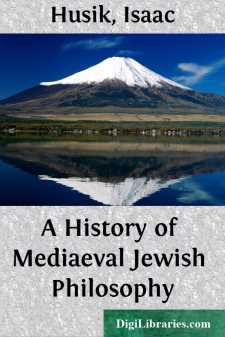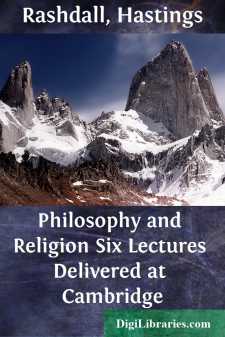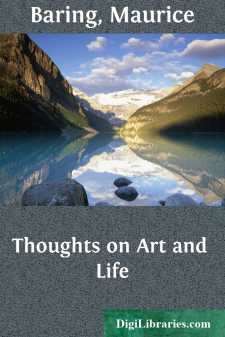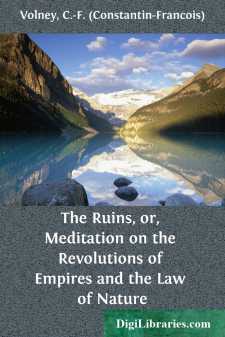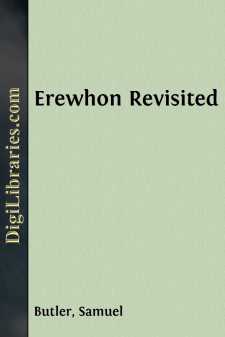Philosophy
- Aesthetics 11
- Eastern 1
- Ethics & Moral Philosophy 2
- General 30
- Hindu 2
- History & Surveys 3
- Logic 1
- Metaphysics 3
- Political 1
- Religious 7
- Social 3
- Taoist 1
Philosophy Books
Sort by:
by:
Isaac Husik
PREFACE No excuse is needed for presenting to the English reader a History of Mediæval Jewish Philosophy. The English language, poor enough in books on Jewish history and literature, can boast of scarcely anything at all in the domain of Jewish Philosophy. The Jewish Encyclopedia has no article on Jewish Philosophy, and neither has the eleventh edition of the Encyclopedia Britannica. Hastings'...
more...
PREFACE IN the daily life of the ordinary man, a life crowded with diverse interests and increasingly complex demands, some few moments of a busy week or month or year are accorded to an interest in art. Whatever may be his vocation, the man feels instinctively that in his total scheme of life books, pictures, music have somewhere a place. In his own business or profession he is an expert, a man of...
more...
GENERAL INTRODUCTION TO THE SERIES Man has no deeper or wider interest than theology; none deeper, for however much he may change, he never loses his love of the many questions it covers; and none wider, for under whatever law he may live he never escapes from its spacious shade; nor does he ever find that it speaks to him in vain or uses a voice that fails to reach him. Once the present writer was...
more...
CHAPTER I A. INTRODUCTION The Protestant Reformation marked an era both in life and thought for the modern world. It ushered in a revolution in Europe. It established distinctions and initiated tendencies which are still significant. These distinctions have been significant not for Europe alone. They have had influence also upon those continents which since the Reformation have come under the dominion...
more...
by:
Maurice Baring
INTRODUCTION he long obscurity of the Dark Ages lifted over Italy, awakening to a national though a divided consciousness. Already two distinct tendencies were apparent. The practical and rational, on the one hand, was soon to be outwardly reflected in the burgher-life of Florence and the Lombard cities, while at Rome it had even then created the civil organization of the curia. The novella was its...
more...
INTRODUCTION. The special subject of the greater part of the letters and essays of Schiller contained in this volume is Aesthetics; and before passing to any remarks on his treatment of the subject it will be useful to offer a few observations on the nature of this topic, and on its treatment by the philosophical spirit of different ages. First, then, aesthetics has for its object the vast realm of the...
more...
PARIS TRANSLATION, First published in this Country by Dixon and Sickels.INVOCATION.Hail, solitary ruins! holy sepulchres, and silent walls! you I invoke; to you I address my prayer. While your aspect averts, with secret terror, the vulgar regard, it excites in my heart the charm of delicious sentiments—sublime contemplations. What useful lessons! what affecting and profound reflections you suggest to...
more...
by:
Vernon Lee
THE USE OF BEAUTY. I. One afternoon, in Rome, on the way back from the Aventine, the road-mender climbed onto the tram as it trotted slowly along, and fastened to its front, alongside of the place of the driver, a bough of budding bay. Might one not search long for a better symbol of what we may all do by our life? Bleakness, wind, squalid streets, a car full of heterogeneous people, some very dull,...
more...
by:
Samuel Butler
CHAPTER I: UPS AND DOWNS OF FORTUNE—MY FATHER STARTS FOR EREWHON Before telling the story of my father’s second visit to the remarkable country which he discovered now some thirty years since, I should perhaps say a few words about his career between the publication of his book in 1872, and his death in the early summer of 1891. I shall thus touch briefly on the causes that occasioned his failure...
more...
by:
John Armstrong
INTRODUCTION The essays on taste taken from the work of John Gilbert Cooper and John Armstrong and reprinted in this issue are of interest and value to the student of the eighteenth century because they typify the shifting attitudes toward taste held by most mid-century poets and critics. Cooper, who accepts the Shaftesbury-Hutchesonian thesis of the internal sense, emphasizes the personal, ecstatic...
more...


